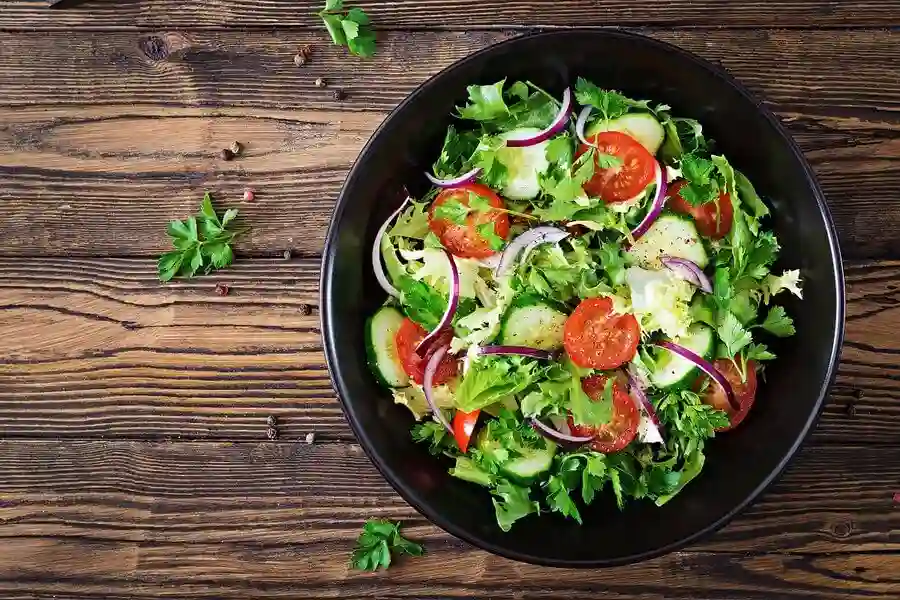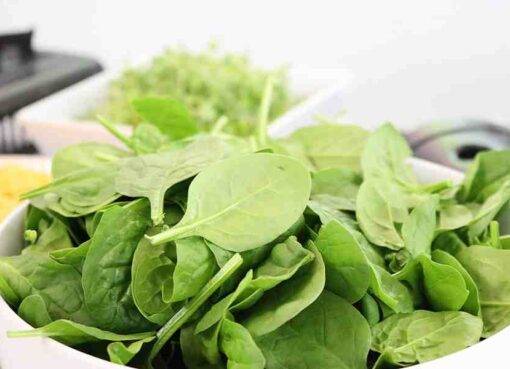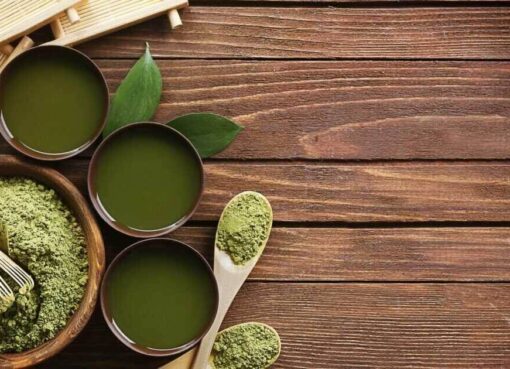Overview
In the pursuit of a long and vibrant life, the significance of our food choices cannot be overstated. What we eat plays a pivotal role in our overall health and longevity.
In this article, we delve into the world of optimal food choices, unveiling the secrets to maintaining a robust and healthy life that can extend well into your centenary years.
Carbohydrates
Bad choices
Refined or processed breads, cereals, and pastries – Refined or processed foods include white bread, white rice, low-fiber breakfast cereals, bagels, donuts, cookies, pastries, and cake. These are (delightful) delivery systems for sugar and empty calories, and they often include unhealthy fats. Processing removes healthful components in whole grains, destroys the food’s natural structure, and often adds many ingredients that are less healthy – particularly trans fats, sodium, and sugars.
Sugars and most artificial sweeteners – Avoid sugar in all of its forms except whole fruits. Sugar may appear as honey, sucrose (table sugar), dextrose, or high fructose corn syrup (HFCS) to name a few variations, and can be found in many kinds of packaged, processed, or prepared foods. Research shows that the fructose in sugar is metabolized differently than other sugars are, in a way that increases the liver’s production of new fat. It is most important that you avoid excessive consumption of fructose. Artificial sweeteners may perpetuate the craving for sweet foods.
Processed or packaged vegetable products – When buying frozen or packaged vegetable products, read the ingredients. If there is anything in the package other than vegetables, pass.
Breakfast cereals – Most cereals are high in sugar content and low in fiber.
Fruit juices – Juicing fruits removes valuable fiber and concentrates the sugar. Sugar is often added as well. Whole fruits are a far better choice.
Dried Fruit – Don’t overdo it with dried fruits such as dates (66% sugar), figs (48% sugar), raisins (74% sugar), prunes (38% sugar), and other dried fruits. Drying fruit concentrates high levels of sugar and calories.
Snack Foods – Beware of the excess sugar, trans fats, and empty calories in snacks.
Good choices
Choose low-sugar, high-fiber, 100% whole grain bread, rice, and pasta products – Consume only the 100% whole-wheat pasta, in moderation. Go for brown rice rather than white rice. Be sure to read the ingredients and look for only whole foods, avoiding processed ingredients, chemicals, artificial fibers such as inulin, additives, or basically anything that would not have been found in kitchens 100 years ago.
Stevia and sucralose – Our Best Healthy Diet recommends eating lots of fruits and vegetables. The amount of sugar in fruit is not harmful to healthy individuals. However, if you must sweeten your food, use stevia, a safe natural sweetener.
Choose green, leafy, and colorful vegetables, and legumes (beans and peas for example) – It is amongst the most preferred food choices for carbs, eat all you want, no need to count calories: broccoli, spinach, tomatoes, onions, garlic, mushrooms, peppers, green beans, and cauliflower, to name a few—fresh, organic, and local whenever possible—never canned. Sweet potatoes are a better choice than white potatoes. Preparing white potatoes with the skins on them will retain valuable nutrients. Legumes are a great source of dietary fiber.
Choose high-fiber, low-sugar cereals – Fiber is a “good” carbohydrate. Try to get 25-35 grams of a combination of soluble and insoluble fiber daily. If you shop carefully, you can find cereals that are not high in sugar and provide ample dietary fiber, like old-fashioned (slow-cooked) oatmeal, Omega-3 flax cereals, plain wheat, bran flakes, and other high-fiber cereals. 100% whole grain is always best. The ingredients should not contain anything artificial or processed.
Choose brightly colored fruits – Examples include strawberries, blueberries, and other berries, tomatoes, pears, pineapple, kiwis, avocados, papayas, corn, pumpkin, citrus, melons, apricots, nectarines, and peaches. These fruits make wonderful healthy snacks and desserts and contain less than 11% sugar. Grapes, bananas, sweet cherries, and mangoes contain about 12-15% sugar but also have valuable nutrients; just don’t overdo it.
Enjoy vegetable, fruit, and nut snacks – Walnuts and almonds are particularly nutritious. A moderate amount of dark chocolate (cocoa) is also healthy—it has been associated with lower blood pressure.
Proteins
Bad choices
Red meat (beef, pork, lamb, and other domesticated animals) – It should be obvious that supersized burgers, all-you-can-eat buffet choices of food, and restaurant items on the menu represent a huge intake of calories, sodium, and saturated. Our Best Choices Healthy Diet says to have lean red meat no more than once or twice a month. Buffalo is a better choice than commercial beef.
Processed meats like bacon, hot dogs, deli meat, and sausage – Processed meats like hot dogs, bacon, sausage, salami, and other deli meats, including deli ham, turkey, bologna, chicken, or anything that has been processed or contains chemicals, preservatives, or additives are off-limits & definitely shouldn’t be on your preferred choices of food. Long-term observational studies have found these are the worst types of meats for the heart.
Better choices
Choose contaminant-free fish, shellfish, or poultry for a weekly treat – Fish is your best choice, especially fatty fish like salmon and tuna. In place of red meat, try to buy organic and/or grass-fed poultry. The fact remains that plant-based whole foods should be the mainstay of your diet. There is no truth to the idea that meat is necessary for protein; there is more than enough protein in plant-based foods. Some beans have surprisingly high protein content, as do most whole-grain foods. You just have to be meticulous while making food choices.
Include an egg in your diet a few days a week – Look for nutrient-rich eggs from grass-fed chickens that actually go outside and eat from the land. Also, check for the Certified Humane badge. The “free-range” or “cage-free” labels do not always mean what they sound like. It may mean the hens have access to an outside door, but never use it. “Vegetarian-fed” does not equal healthy; the best eggs come from naturally omnivorous hens that eat a variety of critters and vegetation. As with all of your food, buy local if you can.
Fats
Bad choices
Trans fats – Trans fat is the common name for processed unsaturated fat with trans-isomer (E-isomer) fatty acid(s). This processing yields the stable saturated fat favored by the food industry, but unfortunately, the consumption of trans fats increases the risk of coronary heart disease by increasing LDL (“bad”) cholesterol and lowering HDL (“good”) cholesterol. Trans fats are often labeled as “partially hydrogenated” oils and are found in most processed, packaged, or manufactured foods, margarine, chips, or fried foods. Restaurant food is notoriously laden with trans fats & we often make up very unhealthy choices of food items from their menu for the satiety of our taste buds.
Saturated fats – Saturated fats offer little nutritional value, and a lot of calories, and contribute to cardiovascular disease. Low-carb diets that recommend eating a lot of fatty meats are not good for your overall health. Avoid them.
Polyunsaturated fats – These fats are found mostly in processed oils. The poly-unsaturated fats are highly unstable and oxidize readily, especially when heated. Oxidation in the body contributes to disease, aging, and oxidized cholesterol, a cardiovascular health risk. Avoid dressings with soybean oil, sunflower oil, or safflower oil.
Better choices
Choose extra-virgin olive oil – Extra-virgin olive oil (EVOO) is an especially healthy monounsaturated fat. Use it on salads or as a flavor treat on vegetables or bread. Do not buy generic EVOO; it may be neither “extra virgin” nor even olive oil; there is no FDA standard for “extra virgin.” Use EVOO sparingly, though, as it is high in calories.
Sauté with extra-virgin coconut oil (EVCO) – Extra-virgin coconut oil is a medium-chain saturated fat that withstands high heat, and unlike animal-based, long-chain saturated fats impart many health benefits without contributing to cardiovascular disease. Use sparingly, though, as it is also calorie-laden. Although canola oil is heat processed and increasingly sourced from genetically modified rapeseed, it may be used in place of EVCO for cooking, if EVCO is not an option.
Choose Omega-3 essential fatty acids (EFAs) – EFAs are an enormously important form of fat, vital to cardiovascular, mental, and overall physical health. Optimal health relies on a 2-1 ratio of abundant Omega-6 EFAs to the Omega-3 EFAs. You can only get Omega-3 EFAs from fatty fish, or in a less potent form from flaxseed, or in small quantities from nuts.
Rapid weight loss
Bad choices
Weight loss programs – Rapid weight loss programs are almost always temporary plans that severely restrict caloric intake, exclude large groups of nutritious foods, and are simply not designed to promote long-term good health.
Low-this, high-that diets – Most diets demonize carbohydrates, lipids, or protein, and promote quotas for carbs, fat, and protein in percentages. Formulas are basically just hype; all three food groups are part of a healthy diet.
Good choices
A healthy lifestyle will control weight and help prevent disease – Eat a whole-foods, primarily plant-based diet. Avoid sugar except that found in fresh fruit. Avoid red meat and packaged, prepared, or processed food. Include moderate exercise for at least thirty minutes, five days a week.
Select the best choices of healthy food along with exercise – To achieve optimal nutrition and manage your weight, choose moderate food portions at a time and try to accommodate 4-6 meals in a day. Combine healthy eating with exercise, stress reduction, and proper sleep to improve your life in many ways.
Beverages
Bad choices
Soft drinks (both regular and sugar-free) – They are nutritionally bankrupt and contain plenty of caffeine, sugar, and/or potentially risky sweeteners.
Sweet fruit juices – Most fruit juices contain concentrated or added sugar. Unsweetened cranberry and pomegranate juices are less sugary, however, and the occasional serving of low-sodium tomato juice is good too.
Excess caffeine – More than three or four cups of coffee a day, for example, is too much. Some soft drinks contain more caffeine than coffee and have dire health implications for children.
Better choices
Choose purified water – Drinking plenty of water helps in three ways: it helps you feel full, increases metabolism, and helps flush toxins out of the body. Drink up.
Choose a glass of red wine daily – One 4-ounce serving a day of non-sweet red wine is antioxidant-rich, and moderate levels of alcohol have been shown to lower the risk of cardiovascular disease. Red wine may also reduce the risk of developing cataracts. Over-indulgence is riskier than no alcohol at all.
Choose anti-oxidant-rich green tea – Tea has a long history as both a beverage and a medicinal herb. Green tea is a very good source of a number of beneficial antioxidants. The moderate use of coffee has been shown to impart a variety of health benefits, so enjoy two or three cups a day, as long as you tolerate caffeine well.
Supplements
Bad choices
Meal replacement products – Read the label – they contain plenty of chemicals and artificially produced vitamins and minerals of questionable quality and potency. They are often sugar-laden as well.
Cheap chains store vitamins and minerals – Cheap is not the way to go to get a quality product at the desired potency. Some vitamins are hazardous when consumed in excessive quantities. Most are useless if the quality and delivery system are substandard.
Getting your Omega-3 EFAs from fish, or inexpensive chain-store fish oils – You’d have to eat a lot of fish, and some commercially available fish contains too many toxins to eat daily. Inexpensive fish oils often contain the same toxins.
Stimulants, appetite depressants, starch blockers, fat blockers, ephedrine, diet shakes, etc. – Don’t use any of them. Period.
Better choices
Choose to get most of your nutrition from healthy food – Real foods, especially vegetables, and fruits, contain readily absorbed natural vitamins and minerals, as well as substances called phytochemicals that you will never find in manufactured food.
If you, like many people, don’t eat a healthy choices diet, you should choose a high-quality multi-nutrient – Total balance is made with the highest quality of ingredients, in precise formulas, and is enteric-coated to ensure maximum absorption in the upper intestine. We recommend it, based on proven quality and results.
Choose high-quality molecularly distilled omega 3 DHA fish oil – No other supplement offers so many benefits for good mental, physical, and cardiovascular health. Read about the many benefits of fish oil.
Choose high-quality supplements – Vitamin D3 (1000 IU or 20 minutes of sunlight daily).
Vitamin B-12 is the only vitamin available only in meat. But you can find high-quality D3 and B-12 supplements at Costco and other stores.
Additional Tips and Recommendations
Bad choices
Coffee creamers – Many non-dairy creamers contain trans fats. Dairy creamers contain both saturated fat and milk sugar.
Milk and other dairies – The protein and fats in milk have some health risks. Dairy can trigger digestive issues like lactose intolerance, even after years of normal consumption. Dairy is not necessary for calcium or protein, contrary to advertising that says otherwise.
Fat and sugar-laden desserts – You know they’re not good for you; admit it.
Farm-raised salmon – In addition to the presence of antibiotics, toxins, and artificial color, farm-raised fish do not eat the same diet as wild fish do.
Commercial low-carb and other diet products – These often have high-fat content and include trans fats. Weight-loss diets may help you lose weight, but they do so at the expense of your long-term health.
Better choices
Choose unflavored soy creamers or nut milk – It should be right up there with your preferred food choices or selection as they are very healthy & low in calories. You can even steam these creamers for a healthy latté.
Choose soy and nut milk and weekly treats of cheese or yogurt – It is still reasonable while adhering to a healthy diet to allow for a small amount of cheese and yogurt, consistent with the Mediterranean Diet. Choose unsweetened, minimally processed products. Always choose plain low-fat yogurt and add your own fresh fruit for that extra flavor.
Can’t resist dessert? Make it a once-a-month sin – Better yet, enjoy a healthy dessert of fruit.
Choose wild-caught salmon or arctic char – Wild-caught fish have naturally higher levels of the very healthy Omega-3 essential fatty acids.
Stick to the Best Choices Healthy Diet – Enjoy all of the plant-based whole foods you want. Watch the calories in the choices of food that you make including oils, cheese, eggs, and meat.
Closing notes
Money can’t buy you health. Most people realize this in the latter stages of their lives when they find themselves constrained on a hospital bed. The world is full of healthy food choices, it is just that we need to open our eyes towards it.
Citation
https://www.nutrition.gov/topics/basic-nutrition/healthy-eating
Featured pic: Food photo created by timolina – www.freepik.com




Your point of view caught my eye and was very interesting. Thanks. I have a question for you. https://www.binance.info/zh-TC/join?ref=UM6SMJM3
Your article helped me a lot, is there any more related content? Thanks! https://accounts.binance.com/es/register?ref=JHQQKNKN
Thanks for sharing. I read many of your blog posts, cool, your blog is very good. https://accounts.binance.com/pl/register-person?ref=WTOZ531Y
Your point of view caught my eye and was very interesting. Thanks. I have a question for you. https://www.binance.com/sv/join?ref=UM6SMJM3
Your point of view caught my eye and was very interesting. Thanks. I have a question for you.